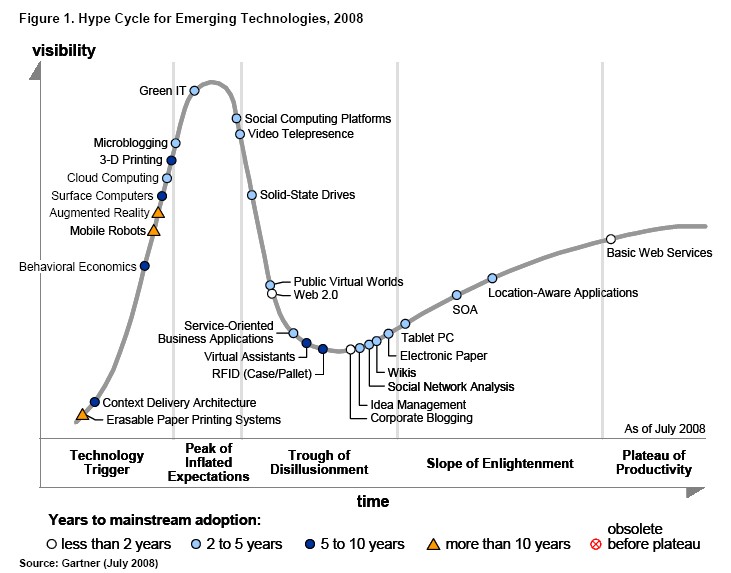One of the interesting things I missed out is Gartners new version of their Hype Cycles for Emerging Technologies – nice because there are some Enterprise 2.0 insights to glean from it, even when Enterprise 2.0 clearly doesn’t equal Web 2.0. As always, thoughts and/or comments are greatly appreciated.
The Social Software Hype Cycle highlights the most important technologies that support rich social interactions. Use our assessment of their business relevance and maturity to guide your investment decisions.
It’s especially nice to see that wikis are finally entering the plateau of productivity (after having traversed the phases of technology trigger, peak of inflated expectations, trough of disillusionment and the slope of enlightenment), followed closely by Idea Management:
Two related technologies and trends that will reach the plateau in two to five years are Social Networking platforms and Microblogging. Good, we need more companies evaluating what role these communication sites and models can play in collaboration environments. Besides I really like Gartners analysis that firms should consider Web 2.0 (read Enterprise 2.0) if they want to drive forward business transformation. Noted are possible advances in the generation of intellectual capital and more effective decision-making, but I would also add more effective innovation management. But still a thorough analysis of needs is a good thing to have:
“The main message of the hype cycle is that organisations need to make sure that when they adopt technologies early, they do so for the right reasons – because it is aligned with an area where it is important for them to innovate, not because everyone is doing it”
More in the 2008 Gartner Hype Cycle Special Report podcast (mp3)
